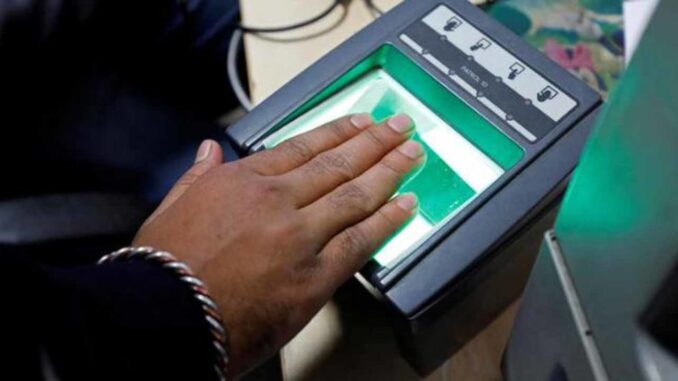
Proposal by the Federal Government to replace Bank Verification Number (BVN) with National Identification Number (NIN) is not only premature in the circumstances that the country is facing, but it has also engendered confusion in the entire exercise of compiling personal and security data for the citizens. Ideally, the government ought to concentrate on providing NIN for Nigerians at this time. If need be, the issue of replacement can come as further development.
The on-going registration of the Nigerian populace in the National Identification Number (NIN) scheme through the National Identity Management Commission (NIMC) certainly appears to have taken a new twist. While briefing newsmen after a facility tour and inspection of the on-going NIN enrolment in Abuja the other day, Isa Pantami, the Minister of Communications and Digital Economy declared that the Bank Verification Number (BVN) will be replaced by the NIN. This has raised so much confusion in the polity.
The lack of details in this declaration has raised a lot of questions as to the direction of government policy in this regard. According to him, a presentation to this effect has been made to the National Economic Sustainability Committee as well as the Governor of the Central Bank of Nigeria (CBN).
While not pre-empting what might have transpired at the National Economic Sustainability Committee on this issue, many have asked how this will be done. In the same vein, others have asked why this should be so or even whether it is necessary at all. Is it that NIN will be facilitated for those with BVN, or that NIN will replace the BVN outright? Of truth, there are implications for either of the policy but with the time and resources expended on the BVN, what is the rationale for planning to replace it? Has the BVN fully served its intended purpose well and is there a guarantee that the NIN will serve it better? These are some of the questions being mumbled among many stakeholders. Indeed this declaration has generated more questions than answers. It has left many stakeholders wondering what government is up to here on this contentious issue.
The idea of having a national identification scheme has been widely acclaimed by many as the way to go in deploying technology to enhance national planning for the betterment of Nigerian society. The lackadaisical attitude of the government in implementing the national identity scheme conceived many years ago has led to the prolonged execution of the scheme such that the majority of Nigerians are yet to be enrolled. Criticisms have trailed the sudden realisation of government that the scheme needs to be fast-tracked to enable the government to address numerous national challenges such as insecurity, immigration, political and socio-economic planning, among others. The sudden government interest in the scheme with the caveat that all mobile telephone lines should be linked to a NIN has led to the surge in enrolment across the country. This change in government policy has created so much challenge for the NIMC that their offices have become a sort of “Mecca” for all and sundry given that their mobile lines stand the risk of being disconnected if they cannot be associated with any NIN. These challenges bedevilling the NIMC in registering Nigerians for the NIN scheme have been enormous given the poor planning and inconsistencies in the execution of the scheme, which has been rife.
Hence, instead of sorting out the existing challenges, the Minister threw some spanner in the works by bringing in the BVN into the entire discussion. Conceptually, the BVN was conceived to address the increasing incidents of compromise on conventional security systems used in financial transactions with banks. It gives each bank customer a unique identity across the entire Nigerian banking system for easy identification and verification in banking transactions by deploying biometrics in enhancing identity management with the full collaboration of the CBN and all the banks in the country. Is the Minister inferring then that the NIN will now take over the functions of the BVN in financial transactions? Does the NIN contain sufficient information as to the multiplicity of accounts a bank customer has? The public is yet to be fully appraised of whatever the Minister presented to the National Economic Sustainability Committee or the discussions with the CBN but the point has to be made that unnecessary policy somersaults are not necessary for the development of the Nigerian society.
The government should focus more on ensuring that all Nigerians are enrolled in the NIN scheme. There are lots of challenges that would warrant the attention of the Minister than dreaming of collapsing a well functioning BVN and replacing it with a NIN that does not contain sufficient information for that purpose. If the BVN has to be replaced by the NIN, then that should be a project that can be embarked upon as a second stage project. All efforts should first be focused on ensuring that all Nigerians are enrolled on the NIMC platform with their mobile numbers linked to their NIN. After that, the dream of replacing the BVN with the NIN can be better articulated. In other words, there is some conceptual confusion about this new deal-replacing BVN with NIN. The government of the federation should remain focused on innovation and technology, in this connection.
END

There is no big deal in the transition from BVN to NIM. All what is needed is for a person’s BVN to be linked to the person’s NIM. The computer will take care of the remaining. Having a unique identifier of NIM is more advantageous than having multiple identifier such as BVN, drivers license, voters I’d etc.